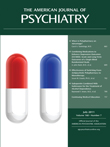Psychotherapy for the Treatment of Substance Abuse
Over the past 20 years, the psychotherapeutic treatment of patients with substance use disorders has been revolutionized as a result of rigorous research studies in which manualized psychotherapies that were developed specifically for this patient population have been tested for efficacy in randomized controlled trials. Psychotherapy for the Treatment of Substance Abuse, edited by two preeminent addiction psychiatrists, Marc Galanter, M.D., and Herbert D. Kleber, M.D., provides a review of many of these therapies in a compact volume adapted from the editors' superb textbook The American Psychiatric Publishing Textbook of Substance Abuse Treatment, Fourth Edition.
In this book, most of the key psychotherapies and other behavioral therapies that have been studied for the treatment of addicted patients are reviewed: motivational enhancement therapy, cognitive-behavioral therapy, contingency management, psychodynamic psychotherapy, network therapy, 12-step facilitation, family therapy, and group therapy. A separate chapter discusses Alcoholics Anonymous. The authorship list encompasses leaders in the field, including those who were critical in the genesis and study of the treatments they discuss.
Several introductory chapters precede the discussion of the different psychotherapies, reviewing topics such as assessment of the patient, testing to identify recent drug use, cross-cultural aspects of addiction therapy, and patient placement criteria. While these chapters do not discuss psychotherapy per se, they round out the book to make it a more broadly encompassing review of evaluation and treatment of individuals with substance use disorders.
One of the strengths of this book is its inclusion of case examples and practical tips within the context of a review of the empirical evidence establishing the efficacy of the treatment modality being discussed. This helps to make this volume appropriate for both clinicians and researchers. The book is also designed both for those who specialize in addiction and for general psychiatrists who, by virtue of the high prevalence rate of substance use disorders, see many of these patients in their practices.



